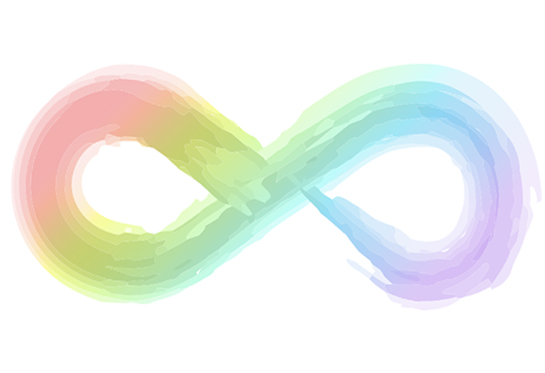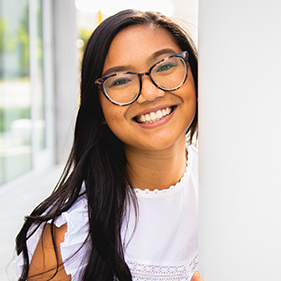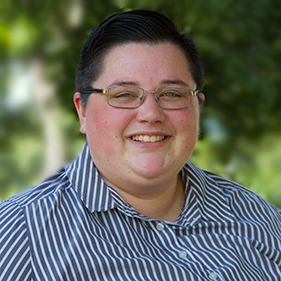New virtual support group for neurodivergent girls, nonbinary teens
MIND Institute’s NeuroTeens is for those with autism, ADHD, learning disabilities and more
Social skills and support groups have always been important to Lizzie Seltzer, but the 15-year-old, who has autism, has usually been the lone girl in the sessions.
“It was a bit strange, being the only girl in a sea of boys,” explained Seltzer, who lives in the Sacramento area and is a sophomore in high school.
That changed over the summer, when she signed up for NeuroTeens, a new support group for neurodivergent girls and nonbinary teens ages 12-18. The free, virtual sessions are run by UC Davis MIND Institute faculty and staff.
“I really like how many girls there are, and I like chatting with them and getting to know them better,” Seltzer said.
A safe space to connect
That’s the goal of the new group: providing a safe place for girls and nonbinary teens to connect, said Axie Acosta, an assistant clinical research assistant at the MIND Institute and the NeuroTeens organizer.
“This is a space for them to feel comfortable and for them to be who they are,” Acosta said.
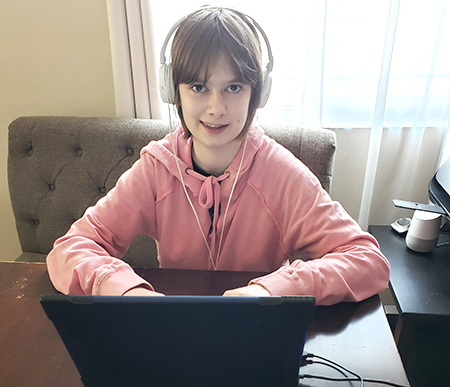
The group offers support and social connection; it’s not a clinical service of the MIND Institute. Participants may have autism, ADHD, obsessive compulsive disorder, learning disabilities and more. No formal diagnosis is required.
A typical session includes introductions and a social topic of some kind, such as friendship or hobbies. Sometimes the participants have opportunities to present their artwork or share videos, and sometimes the group members play online games. “A lot of the time it’s open discussion that we don’t dictate,” said Acosta. “We want the teens to socialize and get comfortable with each other.”
Lizzie Seltzer’s mom Kristy said it’s been very positive for her daughter. “Out of the different groups that Lizzie’s been involved with, this is the most engaged that she’s ever been – she’s never wanted to participate as much as she does with this one,” said Seltzer. “She’s always looking forward to it.”
This is a space for them to feel comfortable and for them to be who they are.—Axie Acosta
An important new resource
The faculty and staff look forward to the sessions, too, said Christine Wu Nordahl, who floated the idea of the group to her lab team in the spring after learning that there were limited support groups for girls and nonbinary teens.
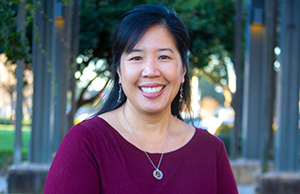
“I asked who was interested in starting the group and everyone immediately said ‘yes,’” said Nordahl, a professor in the Department of Psychiatry and Behavioral Sciences and a MIND Institute faculty member. Six weeks later, the first eight-week NeuroTeens session was underway.
The inclusion of nonbinary teens was also key, said Teryn Heckers, a study recruitment and retention coordinator and facilitator for the group. “It’s a resource that’s needed and we wanted to make a safe space for them. We thought it was important since there are more gender-diverse people in the autistic community,” said Heckers, who identifies as nonbinary.
Heckers has led other social groups in the past and said NeuroTeens is offering something unique. “I wasn’t expecting it to feel so different, but even after the first session I walked away and thought, ‘wow, we are going to accomplish something meaningful here,’ because the space felt so different from other groups, which tend to be mostly male.”
Both Nordahl and Heckers point out that there are other groups geared toward autism that offer meaningful connection and social skills, but participants are mainly boys; NeuroTeens is a new resource that reaches an underserved segment of the autistic community.
Personal growth
Heckers noticed that even after that first session, many of the teens were asking for each other’s email addresses or phone numbers to connect outside of the group. “It was so heartwarming that after an hour-and-a-half together, multiple people were already wanting to exchange contact information!” Heckers said.
Acosta said she was inspired by the members’ willingness to engage with the new group. “I really learned how truly courageous a lot of these teens were for stepping into a brand-new space, not knowing anyone and being vulnerable and open to making new connections.”
…after the first session I walked away and thought, ‘wow, we are going to accomplish something meaningful here,’ because the space felt so different from other groups, which tend to be mostly male.—Teryn Heckers
Girls and autism
The group is open to all neurodivergent girls and nonbinary teens, and many participants have autism, which is understudied in females. According to the Centers for Disease Control, boys are four times more likely to be diagnosed with autism than girls.
“The field is recognizing that males and females, and nonbinary individuals have different needs even though they may have a common diagnosis of autism,” said Nordahl, who is a neuroimaging expert and studies sex differences in the brain in autistic individuals. She also leads the Girls with Autism Imaging of Neurodevelopment (GAIN) study.
“I think NeuroTeens is an extension of that growing recognition. In general, there has been less attention and less focus on the support that girls and nonbinary individuals need and that’s starting to change.”
Nordahl noted that some girls may adopt coping strategies like camouflaging, or masking, their autism characteristics. This might result in additional challenges like being overlooked for diagnosis because they seem more social.
Heckers said the experience gave them a new and fuller perspective.
“It was eye-opening for me, being in a space with mostly autistic girls and nonbinary teens. It allowed me to understand on a deeper - not just intellectual – level how important it is to have these spaces for them,” they said.
Learn more about camouflaging in girls with autism from this presentation by Nordahl.
NeuroTeens ran for one eight-week session in the summer and a new session begins Oct. 18. Nordahl says the all-volunteer team hopes to continue the group as long as there’s a need.
Lizzie Seltzer hopes so, too. Her mom Kristy said they were very happy when they learned about the second session and signed up for it right away.
“I hope it keeps going for a long time,” Lizzie said.
To sign up for NeuroTeens or learn more, email HS-neuroteens@ucdavis.edu or visit the group’s registration page.
Related stories:
Enlarged amygdala involved in psychiatric challenges in young girls with autism
Big brains and white matter: new clues about autism subtypes
The UC Davis MIND Institute in Sacramento, Calif. was founded in 1998 as a unique interdisciplinary research center where families, community leaders, researchers, clinicians and volunteers work together toward a common goal: researching causes, treatments and potential prevention of challenges associated with neurodevelopmental disabilities. The institute has major research efforts in autism, fragile X syndrome, chromosome 22q11.2 deletion syndrome, attention-deficit/hyperactivity disorder (ADHD) and Down syndrome. More information about the institute and its Distinguished Lecturer Series, including previous presentations in this series, is available on the Web at mindinstitute.ucdavis.edu.

